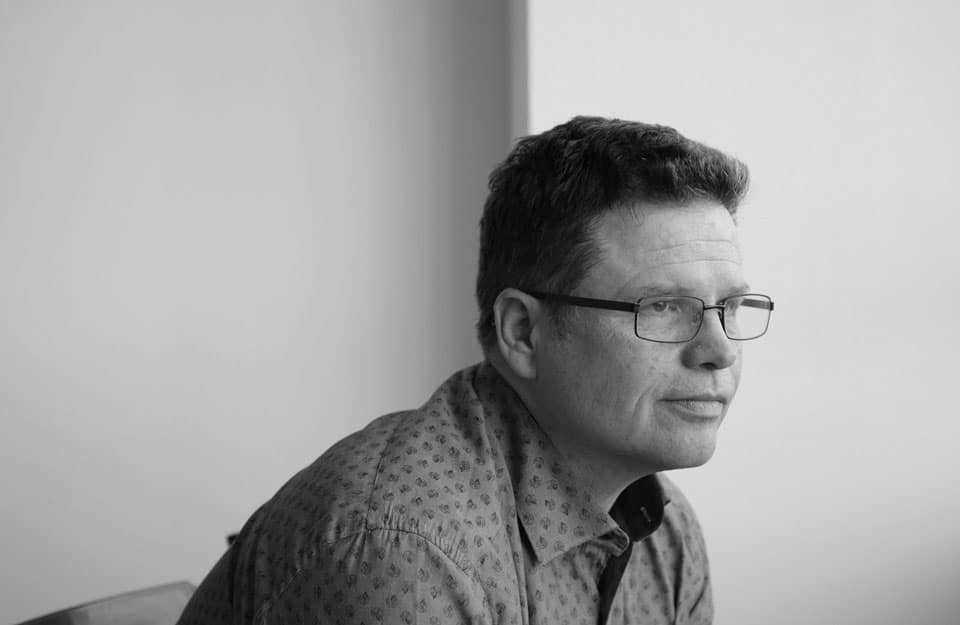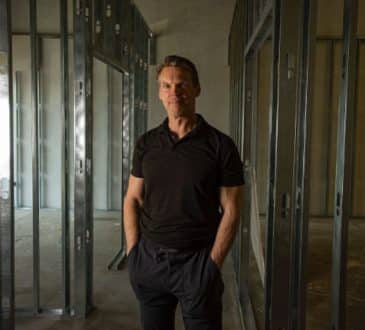Navigating a crisis: how to become a leader who responds rather than reacts

There is a lot written about leadership. For example, between January and July 2023 over 10,900 research papers were published on leadership development, out of a total of over half a million over time. The thought leadership industry, fuelled by a plethora of books, newsletters and blog posts by consultancies and luminaries of the business world, offers a myriad of advice to leaders on things such as ‘CEO excellence’ (McKinsey1) and how to couple the new (Gen AI) with that which we have known for a long term matters (trust), a Frankenstein’s Monster piece of advice (PwC CEO Survey 2024)2. To be fair there is useful stuff in all of this, although if there were a guaranteed answer, we would have found the Silver Bullet by now.
The pressure to be perfect
Being a leader is not easy, that much is stating the obvious, in no small part because it requires both coming to terms with the expectations you place on yourself, plus your internal self-narrative, as well as dealing with the projections and hopes of others, which in a crisis are likely to be acute and anxiety driven.
The language that permeates leadership discourse fuels the tendency to hold leaders up as heroic figures, to standards that are difficult to attain when the going is good, let alone in a crisis its. Leaders are expected to be excellent, to be great rather than merely good, to be outcomes obsessed, ninja level at building trust and genius level communicators and influencers. And, yes, they need to be brilliant in a crisis, to keep a calm head when others around them are losing theirs.
Being ‘in’ a crisis
During research for my book, No Silver Bullet, Diana Wu David, a former Financial Times executive and management consultant, commented that leaders have “got used to focusing on whatever crisis is at hand and extrapolating on that, rather than looking beyond that” and seeing the bigger picture and context. This is not helped by the degree to which many leaders are wedded to the strategies, frameworks, and developmental methodologies favoured by business schools and big consultancies. Why wouldn’t they be, given how few of the pedlars of silver Bullets will admit they are actually no such thing?
Part of the challenge, when so many say they have the answer to a crisis or solution to a complex problem, is to assume that they are right and are only able to sell them with such certainty because they work. That assumption is a reaction, rather than a response, for it colludes with the myth of fixability, the idea that there is always an answer to problem, and the kicker for many leaders is that the kind of problem that falls into the category of ‘crisis’ is precisely that which is immune to oversimplification.
So, what to do?
Based on my research and twenty-five years of working with and observing leaders struggling with the challenges of leadership and change, the following suggestions offer no guaranteed blueprint for success, because ‘becoming a leader who responds rather than reacts’ is life work. It means moving beyond simple prescriptions and accepting that, maybe, leading in crisis requires a more nuanced and wise approach. Five suggestions to start you off:
- Get comfortable with not knowing
This bit may be a little uncomfortable. The Romantic poet John Keats3 described “negative capability” as being “when a man is capable of being in uncertainties, mysteries, doubts, without any irritable reaching after fact and reason.” Lurking in here is shame, which Dr Eliat Aram, the CEO of the Tavistock Institute of Human Relations, describes as “an affect of not knowing” and “related to feelings of inferiority” (unpublished paper, 2001: 10). She goes on to highlight how it gets triggered when we panic “around not knowing because we have learned to link not knowing with a sense of inferiority” (ibid.).It is hardly surprising that leaders are attracted to people and solutions that radiate certainty. The ask when it comes to responding to a crisis is to pay attention to both the context a crisis arises in – does it merit a simple solution or require more thoughtful investigation? – and being open to the possibility that working on one’s own anxieties and feelings of inferiority are key to building leadership capability. - Cultivate a both/and mindset
When all around are asking for either/or, yes/no, or stop/start binary responses, getting comfy with not knowing requires the ability to see and hold nuanced positions. In a world where nuanced approaches to organisational challenges take longer than a tweet or TikTok short, those that have the temerity to suggest that there may not be simply a ‘right’ or ‘wrong’ approach may not be welcome voices. For leaders under pressure to act in John Wayne style, to instantaneously have the answer, to assert that and act immediately, it is even more important to cultivate a both/and mindset.That may mean challenging both deeply held assumptions and fear driven behaviours of others, amplifying the need for leaders to do work on themselves that enables them to remain grounded when others are struggling to do so. After all, if all we have are headless chickens… - Ask questions
Key to remaining grounded and supporting others in a chaotic or complex space, in particular if the crisis you are facing is in part or whole related to human behaviour, is cultivating the ability to ask deeper questions. In my research, I asked people what the next best thing to a Silver Bullet was. The answer was unequivocal: inquiry, specifically getting together as many diverse people as possible who have a stake in the problem, with permission to ask any question. Being in a crisis is the place for sensing and responding, not heroic leadership. - Experiment
Responding rather than reacting is a function of your willingness to experiment, and being prepared to fail and learn. If you do not know what is going on or what to do, to expect to be right as a default it an absurdity. Even when the crisis is existential, say COVID or climate change related, approaching these with anything other than a willingness to experiment, test and learn is to fly in the face of reality.I often remind clients that the only failed experiment is one from which no learning can be derived, a position that sometimes runs up against the anxiety for guaranteed success e.g. the client whose innovation division had to spell out in business plans how they would guarantee success… - Develop reflexivity
The rhetoric in leadership development circles regarding the importance of developing the capacity for critical reflection is laudable. I argue that on its own it is useful but not sufficient. Let us assume you are leader who goes away on a lovely leadership retreat at a lush business school campus. You spend a week reflecting deeply on yourself, critically so. You understand yourself better than you did before all the lovely food and conversations with peers. Then you go back to work and the next crisis that hits means you revert to type.The difference that makes a difference is developing a reflexive practice. This means cultivating the ability to notice your own beliefs, judgments and practices and what influences these (e.g. psychological, social and systemic factors). What it also requires a deep curiosity and willingness to both inquire into and experiment around how you show up and the impact you have in the workplace, and to then repeat that noticing process before again re-entering the workplace and experimenting once more.
The ‘becoming’ bit
It is worth labouring the point that, even if you do a great leadership programme or read a brilliant book, ‘becoming’ a leader who is both comfortable and skilled in a crisis is an ongoing process. It will require accepting and experiencing some useful discomfort in service of your learning, because there is little that we learn in life, in a developmental sense, that is not normally accompanied by a wriggle or wrestle.
Think about moments where you have really experienced a shift in your understanding of who you are, how you show up and how others experience you, whether at work or in your home life. As you, say, experimented to become more comfortable challenging others or working through conflict constructively, was that plain sailing? Or did it require you to try things out, sometimes in ways that were not always successful or comfortable?
Given that leading in a crisis is equally unlikely to be plain sailing and may well be uncomfortable, the learning required to ‘become’ better at this is unlikely to be superficial. It is however deeply rewarding and can be genuinely transformative, in the true sense of the word.
Written by Steve Hearsum.
Aram, E. 2001. Shame as an integral part of a potentially transformative learning process. (Unpublished paper).
Have you read?
Top 50 global artists list, 2023: These are the most successful living artists in the world.
These Are The Most Popular Songs For Workplace Productivity.
Twenty-five of the world’s oldest billionaires in 2023 ranked.
Ranked: Countries That Produce the Most Carbon Dioxide (CO2), 2023.
Ranked: These Are The Most Desirable Jobs in the World, 2023.
Ranked: U.S. states by the number of billionaires, 2023.
Add CEOWORLD magazine to your Google News feed.
Follow CEOWORLD magazine headlines on: Google News, LinkedIn, Twitter, and Facebook.
This report/news/ranking/statistics has been prepared only for general guidance on matters of interest and does not constitute professional advice. You should not act upon the information contained in this publication without obtaining specific professional advice. No representation or warranty (express or implied) is given as to the accuracy or completeness of the information contained in this publication, and, to the extent permitted by law, CEOWORLD magazine does not accept or assume any liability, responsibility or duty of care for any consequences of you or anyone else acting, or refraining to act, in reliance on the information contained in this publication or for any decision based on it.
Copyright 2024 The CEOWORLD magazine. All rights reserved. This material (and any extract from it) must not be copied, redistributed or placed on any website, without CEOWORLD magazine' prior written consent. For media queries, please contact: info@ceoworld.biz
SUBSCRIBE NEWSLETTER








